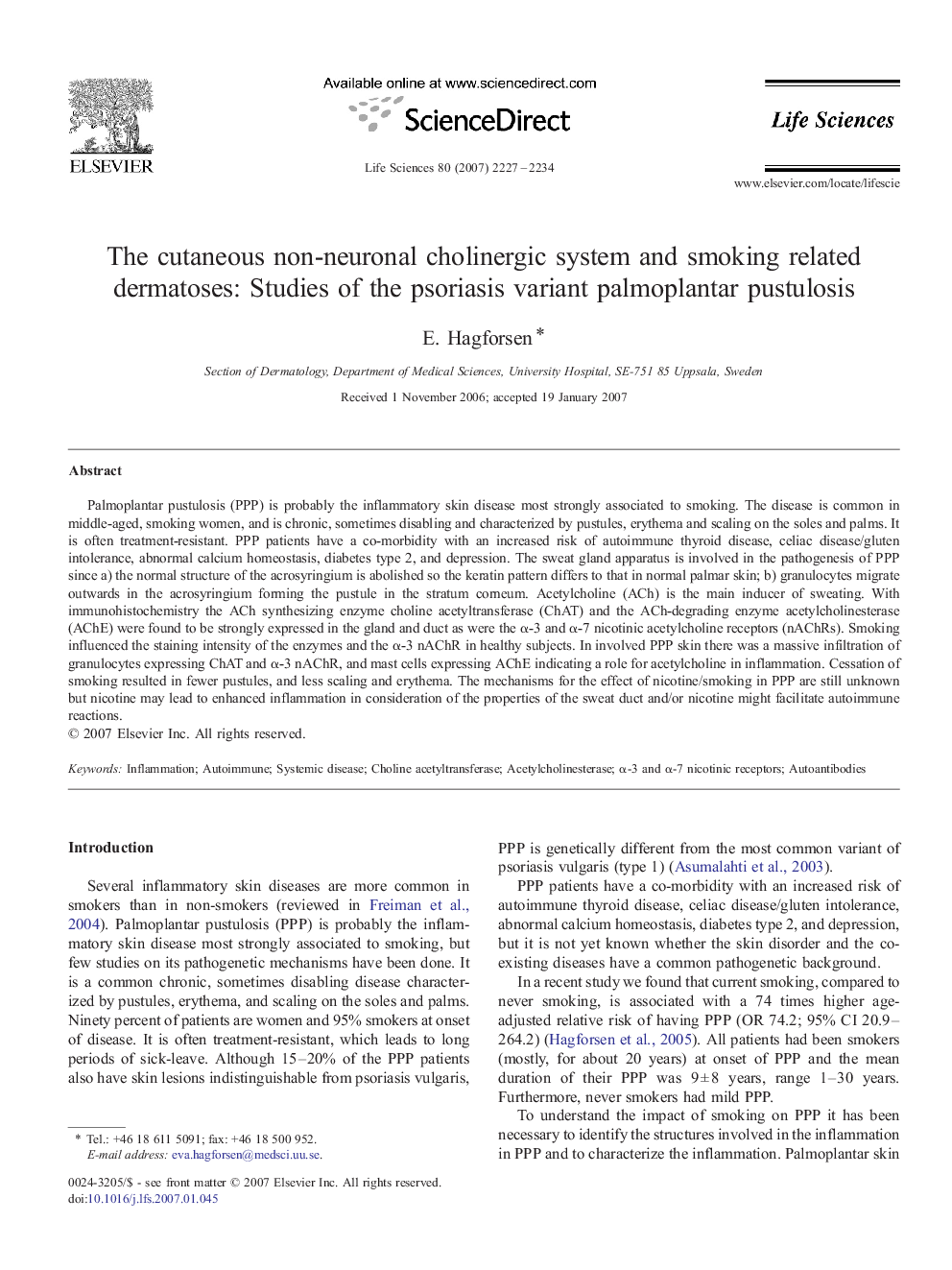| کد مقاله | کد نشریه | سال انتشار | مقاله انگلیسی | نسخه تمام متن |
|---|---|---|---|---|
| 2553557 | 1560769 | 2007 | 8 صفحه PDF | دانلود رایگان |

Palmoplantar pustulosis (PPP) is probably the inflammatory skin disease most strongly associated to smoking. The disease is common in middle-aged, smoking women, and is chronic, sometimes disabling and characterized by pustules, erythema and scaling on the soles and palms. It is often treatment-resistant. PPP patients have a co-morbidity with an increased risk of autoimmune thyroid disease, celiac disease/gluten intolerance, abnormal calcium homeostasis, diabetes type 2, and depression. The sweat gland apparatus is involved in the pathogenesis of PPP since a) the normal structure of the acrosyringium is abolished so the keratin pattern differs to that in normal palmar skin; b) granulocytes migrate outwards in the acrosyringium forming the pustule in the stratum corneum. Acetylcholine (ACh) is the main inducer of sweating. With immunohistochemistry the ACh synthesizing enzyme choline acetyltransferase (ChAT) and the ACh-degrading enzyme acetylcholinesterase (AChE) were found to be strongly expressed in the gland and duct as were the α-3 and α-7 nicotinic acetylcholine receptors (nAChRs). Smoking influenced the staining intensity of the enzymes and the α-3 nAChR in healthy subjects. In involved PPP skin there was a massive infiltration of granulocytes expressing ChAT and α-3 nAChR, and mast cells expressing AChE indicating a role for acetylcholine in inflammation. Cessation of smoking resulted in fewer pustules, and less scaling and erythema. The mechanisms for the effect of nicotine/smoking in PPP are still unknown but nicotine may lead to enhanced inflammation in consideration of the properties of the sweat duct and/or nicotine might facilitate autoimmune reactions.
Journal: Life Sciences - Volume 80, Issues 24–25, 30 May 2007, Pages 2227–2234